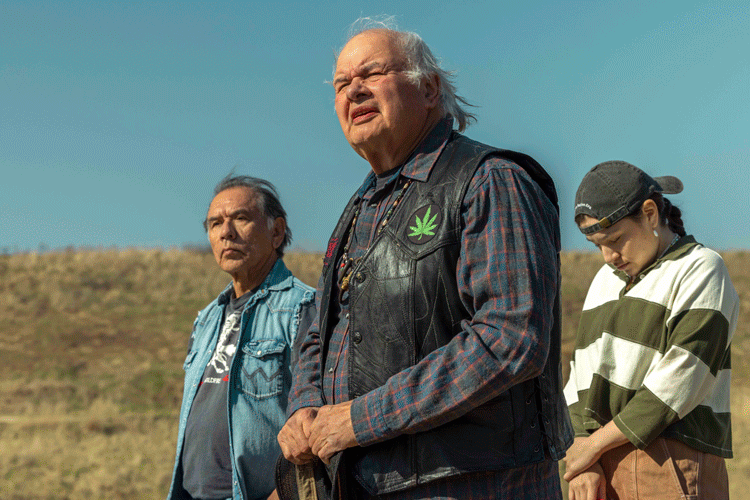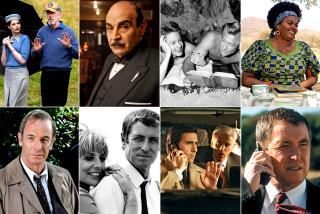J.R. WOULD BE PROUD OF BRITISH TV’S ‘DALLAS’ BRAWL
- Share via
LONDON — The Battle of Britain rages.
J. R. Ewing himself is a scoundrel capable of every malfeasance. But this is awful. This is terrible. This, charged Bill Cotton, managing director of the BBC, “is a low blow.”
Thames Television has captured “Dallas” from the BBC.
The prim, above-it-all, stiff-upper-lipping BBC, representing the cream of television, and Thames, responsible for so many glittering programs, fighting over the entertaining-but-trashy CBS hit “Dallas”?
Rah-thur!
Actually, the dust may be settling. A fixture on the BBC since 1978, “Dallas” is one of the biggest TV hits in the United Kingdom. But, when the BBC recently wouldn’t go along with the new $60,000-per-episode “Dallas” rights fee imposed by the U.S. distributor, Worldvision, the rival Thames outraged the BBC by stepping into the breach.
Thames, one of the independent companies comprising England’s commercially supported ITV, will air 26 new “Dallas” episodes starting in November.
Cotton and other top BBC officials reacted angrily. “When you air a program that long (since 1978), I think you could say it (the Thames action) is a low blow,” Cotton said. He refused to elaborate.
However, the BBC is known to feel that Thames shattered an unwritten agreement among the non-commercial BBC and ITV stations not to grab each other’s programs.
England’s Independent Broadcast Authority, which loosely administers the ITV stations, called the Thames “Dallas” deal “most improper” and wanted it canceled, according to a knowledgeable source who asked not to be identified. But Thames insisted that it was legally bound to honor the commitment, the source said.
In a most ungentlemanly fashion, the BBC counterattacked.
Although entitled to run 15 more “Dallas” episodes under its existing contract with Worldvision, it yanked the series from the air, intending to redeploy it in November opposite the “Dallas” episodes on Thames.
“Dallas” against “Dallas,” J.R. against J.R., drawl against drawl, corn against corn. It would be a horrible trash bath. But it wasn’t to be. The English rebelled.
Anti-BBC reaction was so strong--a group of Yorkshire women even gathered 5,000 signatures and recruited a member of Parliament to speak in their behalf--that the BBC was forced to retreat.
“Dallas” is now back on the BBC.
That the protesters were editorially supported by London newspapers did not go unnoticed by Cotton. “It was a very peculiar uproar,” he said, “one that seemed to be backed by certain Fleet Street interests.”
Meanwhile, Thames had plenty to say about the BBC. “We thought it was petty of them to take the show off the air,” said Thames public relations director Don Cullimore, the company’s spokesman throughout the controversy. “I like the BBC, so I hated to see the BBC make itself look foolish and almost like a disgrace,” he said.
Cullimore insisted that Thames acted honorably and acquired “Dallas” only after the BBC refused to meet a Worldvision deadline.
He estimated that “Dallas” is so popular that it would draw a weekly ITV audience of 3 to 4 million in London alone and bring in up to $30,000 per 30-second spot in prime time, matching top figures for other programs aired on British TV.
It almost seems that American programs are more prominent on British TV than British ones. Although required to limit their schedules to 14% foreign programming, the two BBC channels and two ITV channels pack most U.S. imports into prime-time hours, making them some of the most-watched programs on British TV.
Loyal “Dallas” fans cross all British socioeconomic lines and range from cabbies to such prominent TV executives as Sir Dennis Forman, chairman of ITV’s prestigious Granada Television, the company that produced “The Jewel in the Crown,” “Brideshead Revisited” and other classy series.
“ ‘Dallas’ is handled with enormous certainty,” he said. “The performances are much bigger than life, reminding me of Victorian theater. It’s full-blooded and juicy.”
And said the BBC’s Cotton, admiringly: “I don’t know if we could ever make a ‘Dallas.’ ”
Is peace really at hand?
The Thames acquisition of “Dallas” has raised speculation that Thames will also try to wrest the popular “Dynasty” (pronounced “Dihnasty” here) from the BBC when its contract with Metromedia lapses. “Definitely not,” promised Cullimore.
And there’s more speculation that the BBC will retaliate by trying to snare “The A-Team” from Thames. “I don’t see that as a possibility,” Cotton said.
Meanwhile, J.R. continues to live, thrive and plot on the BBC--until November.
More to Read
The complete guide to home viewing
Get Screen Gab for everything about the TV shows and streaming movies everyone’s talking about.
You may occasionally receive promotional content from the Los Angeles Times.






